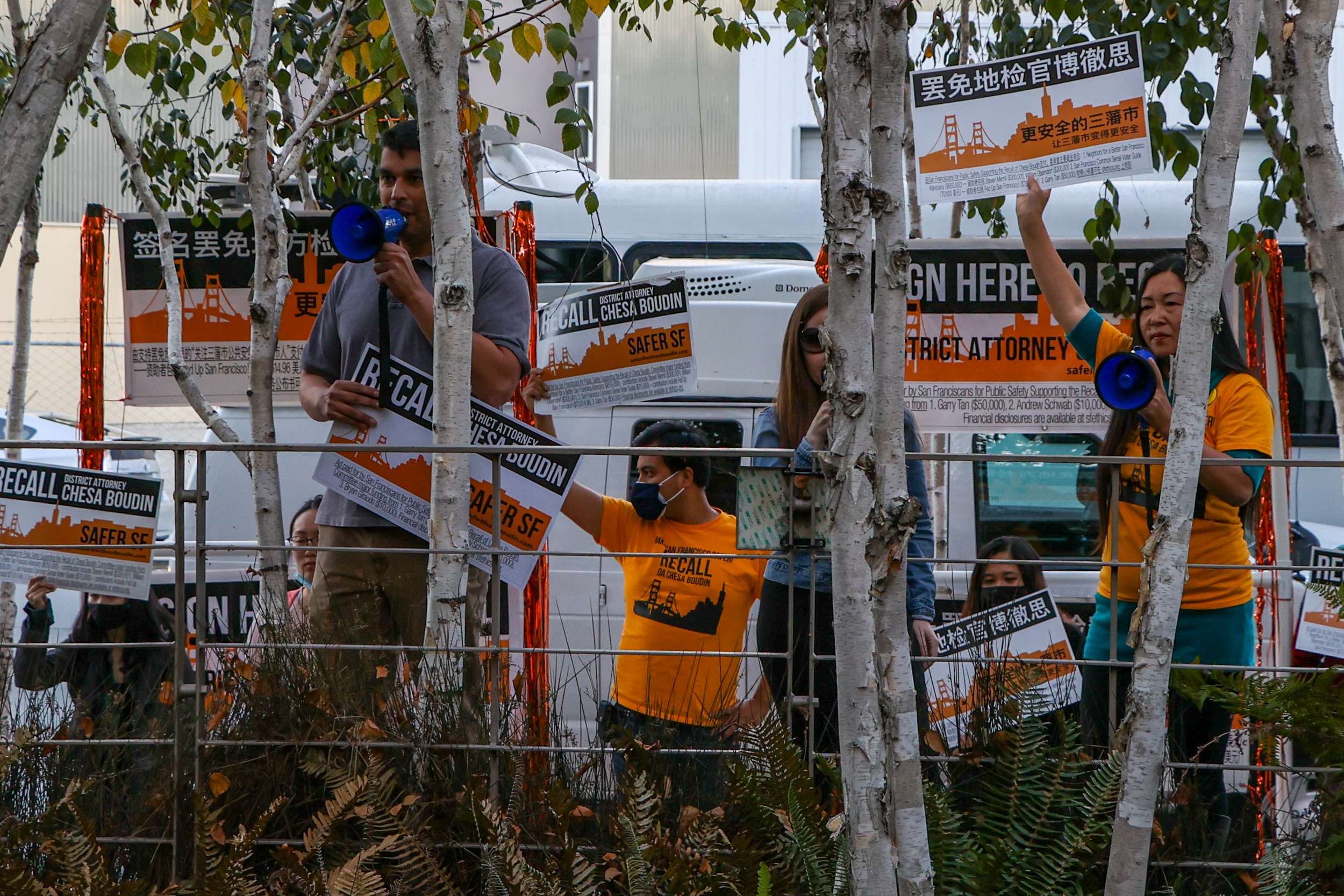San Francisco voters already unseated three school board members, and they'll soon decide on the district attorney's fate. But even then, the debate over recalls isn't stopping.
In June, on the same ballot as the recall of District Attorney Chesa Boudin, voters will weigh in on whether to reform the recall process.
A charter amendment, Proposition C, aims to do three things at once. It would push back the eligibility window for a recall campaign from six months after an official takes office to one year, while also prohibiting it from occurring less than one year before that official is up for re-election. Further, if a recall is successful, the appointed replacement is limited to an interim position. They would legally be considered a caretaker who cannot run for that seat in the next election.
This is a direct response to the successful recall of three school board members in February, nine months before those same officials would have faced the voters again. The slew of special elections this year has cost San Francisco nearly $12 million, with the school board recalls alone costing $3.25 million while registering only 36% voter turnout.
Tuesday’s election, in which Supervisor Matt Haney won the bid to represent Assembly District 17, saw a mere 29 percent of registered voters participate—the lowest for the city in the past decade.
“That should make us feel embarrassed,” said Lee Hepner, legislative aide to Supervisor Aaron Peskin, who put forward Prop. C. “We shouldn’t have recalls within a year of a general election.”
As for the caretaker clause, Hepner said it takes out the politics of people vying to be appointed and have a major advantage in running.
“It should really be a referendum on the person who is serving,” he added.
Prop. C would apply to any vacancy created by a recall election on or after June 7, when Boudin faces a recall. Four supervisors — Aaron Peskin, Hillary Ronen, Dean Preston, and Board President Shamann Walton — co-sponsored the measure to get it placed on the ballot. It’s been endorsed by the San Francisco Democratic Party, San Francisco Labor Council, Harvey Milk LGBTQ Democratic Club, League of Pissed Off Voters, and others.
Days after the city’s second election of the year, campaigns to support or reject the measure are coming into view. Siva Raj and Autumn Looijen, who initiated and organized the school board recall campaign soon after moving to the city in February 2021, have officially rebranded as the SF Guardians campaign to challenge Proposition C. They’re joined by Mayor London Breed, Grow SF, the Alice B. Toklas LGBTQ Democratic Club and the Chinese American Democratic Club.
Looijen and Raj began gathering signatures in April 2021, and the special election was made official in October. They claim Prop. C would narrow the window to start a recall to just 8.5 months. The measure itself states a recall can be initiated 12 months after an elected official has been in office and prohibits "the submission of a recall petition to the Department of Elections if the subsequent recall election would be required to be held within 12 months of a regularly scheduled election for the office held by the official sought to be recalled." The SF Guardians argue that this would make recalls “near impossible” since, when accounting for time to process petitions and schedule the special election, the new deadline means signatures cannot be submitted in the 18-month period before a regularly scheduled election for the official in question.
“It restricts the window in which a recall can be initiated,” Looijen said. “Anyone who thinks it’s easy to put a recall on the ballot has never done it. It consumed our entire lives for an entire year. If they make a mistake after year two, there’s nothing you can do.”
Hepner refutes this math. He points to the Boudin recall, which, under the proposed reform, would still have taken place. The intent to file came in April 2021, more than one year after the DA took office, and the petition was filed in October 2021, more than 18 months before he would be up for reelection.
Echoing points of debate around the school board recall, Raj and Looijen argue that Prop. C limits democracy by curtailing voters’ ability to intervene over bad leadership. Supporters of Prop. C, however, argue that special elections effectively limit voters’ say, given the low turnout, and distracts elected officials from governance.
“Democracy is not about a minor group of people making a decision for the majority,” said Anabel Ibáñez, political director of United Educators of San Francisco. “Why are they so afraid for a large percentage of voters to make a decision?”
Correction: An earlier version of this story misstated that supervisors Myrna Melgar and Connie Chan co-sponsored Prop. C. The story has been updated to reflect that they are not listed as co-sponsors of the final version.
The story has also been updated to clarify the timeline to conduct the recall process under Prop. C.
